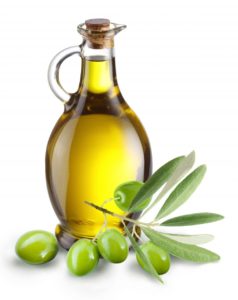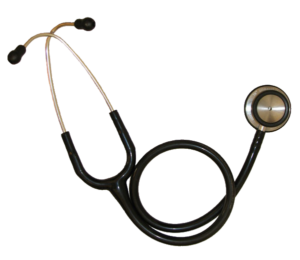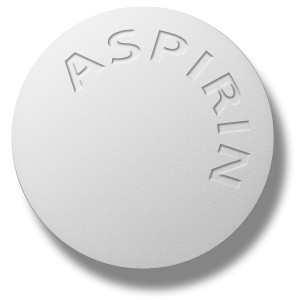 The following studies reinforce the advice that people should eat a variety of fruits and vegetables, as well as olive oil (part of the Mediterranean diet).
The following studies reinforce the advice that people should eat a variety of fruits and vegetables, as well as olive oil (part of the Mediterranean diet).
Studies find that consumption of fruits, vegetables, herbs, and extra virgin olive oil have various health benefits, and the following studies, even though not done with humans, suggest some reasons for their health benefits.
Luteolin appears to have anti-tumor effects, and so may reduce cancer risk. Dietary sources of luteolin include celery, broccoli, green pepper, parsley, thyme, dandelion, perilla, chamomile tea, carrots, olive oil, peppermint, rosemary, navel oranges, and oregano. Extra-virgin olive oil contains the ingredient oleocanthal, which appears to kill a variety of human cancer cells without harming healthy cells.
From Science Daily: Natural compound could reduce breast cancer risk in some women
The odds of women being diagnosed with breast cancer increase in postmenopausal women who have taken a combined estrogen and progestin hormone replacement therapy; these women also have an increased risk of developing progestin-accelerated breast tumors. Now, researchers have found that luteolin, a natural compound found in herbs such as thyme and parsley as well as vegetables such as celery and broccoli, could reduce the cancer risk for women who have taken hormone replacement therapy.
"Nevertheless, research has proven that a higher incidence of breast cancer tumors can occur in women receiving therapies that involve a combination of the natural component estrogen and the synthetic progestin. Most older women normally have benign lesions in breast tissue," Hyder said. "These lesions typically don't form tumors until they receive the 'trigger'-- in this case, progestin--that attracts blood vessels to cells essentially feeding the lesions causing them to expand." His newest study shows that when the supplement luteolin is administered to human breast cancer cells in the lab, benefits can be observed including the reduction of those vessels "feeding" the cancer cells causing cancer cell death.
.... the natural compound exerts its anti-tumor effects in a variety of ways. Then, Hyder further tested laboratory mice with breast cancer and found that blood vessel formation and stem cell-like characteristics also were reduced in vivo, or inside the body.
From Medical Xpress: Ingredient in olive oil kills cancer cells with their own enzymes
A Rutgers nutritional scientist and two cancer biologists at New York City's Hunter College have found that an ingredient in extra-virgin olive oil kills a variety of human cancer cells without harming healthy cells. The ingredient is oleocanthal, a compound that ruptures a part of the cancerous cell, releasing enzymes that cause cell death.
Paul Breslin, professor of nutritional sciences in the School of Environmental and Biological Sciences, and David Foster and Onica LeGendre of Hunter College, report that oleocanthal kills cancerous cells in the laboratory by rupturing vesicles that store the cell's waste....Scientists knew that oleocanthal killed some cancer cells, but no one really understood how this occurred. Breslin believed that oleocanthal might be targeting a key protein in cancer cells that triggers a programmed cell death, known as apoptosis....
After applying oleocanthal to the cancer cells, Foster and LeGendre discovered that the cancer cells were dying very quickly – within 30 minutes to an hour....LeGendre, a chemist, provided the answer: The cancer cells were being killed by their own enzymes. The oleocanthal was puncturing the vesicles inside the cancer cells that store the cell's waste – the cell's "dumpster," as Breslin called it, or "recycling center," as Foster refers to it. These vesicles, known as lysosomes are larger in cancer cells than in healthy cells, and they contain a lot of waste. But oleocanthal didn't harm healthy cells, the researchers found. It merely stopped their life cycles temporarily – "put them to sleep," Breslin said. After a day, the healthy cells resumed their cycles.

 The issue of overdiagnosis and overtreatment rears its head again - this time in a study looking at thyroid cancer detection and death rates. The death rate from thyroid cancer has stayed the same since 1935, as has the number of thyroid cancers presenting with symptoms of thyroid cancer. But...the number of new cases of silent thyroid cancer -- the kind where patients have no symptoms -- almost quadrupled in recent years, and these are the tiny cancers that probably won't cause a problem in the person's lifetime. The researchers then discuss how NOT to find these tiny silent thyroid cancers, so as to avoid overdiagnosis and the harms of overtreatment. From Science Daily:
The issue of overdiagnosis and overtreatment rears its head again - this time in a study looking at thyroid cancer detection and death rates. The death rate from thyroid cancer has stayed the same since 1935, as has the number of thyroid cancers presenting with symptoms of thyroid cancer. But...the number of new cases of silent thyroid cancer -- the kind where patients have no symptoms -- almost quadrupled in recent years, and these are the tiny cancers that probably won't cause a problem in the person's lifetime. The researchers then discuss how NOT to find these tiny silent thyroid cancers, so as to avoid overdiagnosis and the harms of overtreatment. From Science Daily: Thyroid gland. Credit: Mayo Foundation for Medical Education and Research
Thyroid gland. Credit: Mayo Foundation for Medical Education and Research Some recent studies looked at aspirin use and cancer and found that consistent use for a number of years (5 to 10 years) lowers the rate of a number of cancers, including colon cancer. However, the longer one takes daily aspirin - then harms start adding up, with a major one being gastrointestinal bleeding. NSAIDs (non-steroidal anti-inflammatory drugs) are also linked to lower rates of various cancers, but harms with long-term use are cardiovascular risks (stroke and heart attack). The first article discusses that many doctors think this lower cancer rate occurs because aspirin and NSAIDs
Some recent studies looked at aspirin use and cancer and found that consistent use for a number of years (5 to 10 years) lowers the rate of a number of cancers, including colon cancer. However, the longer one takes daily aspirin - then harms start adding up, with a major one being gastrointestinal bleeding. NSAIDs (non-steroidal anti-inflammatory drugs) are also linked to lower rates of various cancers, but harms with long-term use are cardiovascular risks (stroke and heart attack). The first article discusses that many doctors think this lower cancer rate occurs because aspirin and NSAIDs  In the past few months there has been a lot of discussion about early screening tests for cancer (when there are no symptoms) versus diagnostic tests (testing once symptoms appear), especially for prostate cancer and breast cancer. Because unfortunately screening also has harms - it is not without significant risks. So the following 2 articles discussing breast cancer are real eye openers. The first article discusses a large study that found that no matter how early the screening and no matter how tiny the cancer and extensive the treatment (e.g, mastectomy of both breasts), in a certain percentage of women the cancer will reappear in a deadly fashion and eventually kill about 3.3% even though they are treated early. The Medscape article points out that it is thought that 28% of early stage breast cancers will progress or reappear as deadly metastatic cancer (even years later) no matter the treatment.
In the past few months there has been a lot of discussion about early screening tests for cancer (when there are no symptoms) versus diagnostic tests (testing once symptoms appear), especially for prostate cancer and breast cancer. Because unfortunately screening also has harms - it is not without significant risks. So the following 2 articles discussing breast cancer are real eye openers. The first article discusses a large study that found that no matter how early the screening and no matter how tiny the cancer and extensive the treatment (e.g, mastectomy of both breasts), in a certain percentage of women the cancer will reappear in a deadly fashion and eventually kill about 3.3% even though they are treated early. The Medscape article points out that it is thought that 28% of early stage breast cancers will progress or reappear as deadly metastatic cancer (even years later) no matter the treatment. The following article supported what I have been reading over the past few years: that medical tests and treatments also have downsides, that it is possible to "know too much", that more harm than benefits can occur from certain tests, procedures, and medicines, and
The following article supported what I have been reading over the past few years: that medical tests and treatments also have downsides, that it is possible to "know too much", that more harm than benefits can occur from certain tests, procedures, and medicines, and